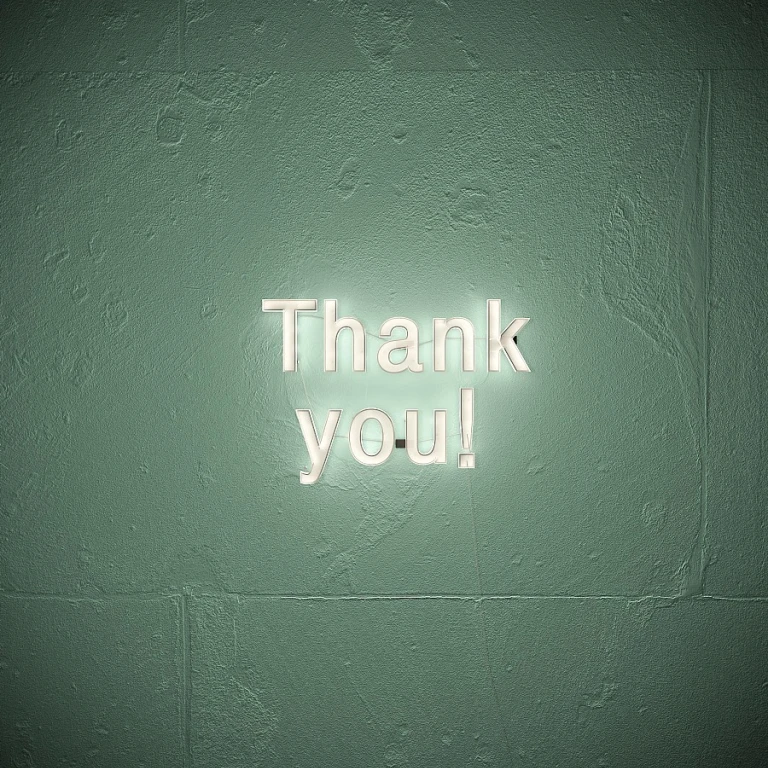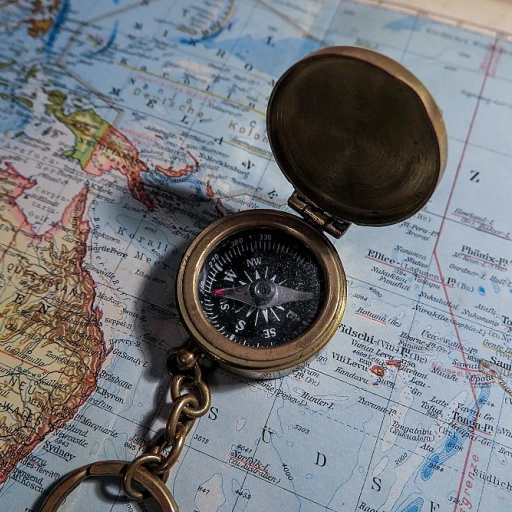Understanding the Role of HR
Getting to Grips with Human Resources
Diving headfirst into a human resources job interview requires more than just brushing up on your resume and choosing the right outfit. It's about understanding the essence of HR. The role involves talent management, company culture, and employee engagement, among others. As an aspirant, you must have a clear picture of what the HR position entails. Recognizing the core responsibilities can give you a solid foundation to answer interview questions with confidence. Human resources professionals are more than just interviewers or paper-pushers. They're the backbone of a well-functioning team. It's about connecting the dots between management objectives and employee needs to ensure a harmonious work environment. Knowing this gives you the kind of credibility interviewers look for in a candidate. Of course, as someone looking to break into HR or move up the ladder, you shouldn't just stop at what HR professionals do normally. It's beneficial to understand how your own skills align with the expectations of the role. Do you have strong communication skills? Are you able to multitask with excellent time management? These strengths are invaluable and, when articulated well, can set you apart from other candidates. Highlighting how you handle people, strategize for success, or resolve issues will help you stand out. In interviews, you'll be faced with questions that measure your problem-solving abilities, adaptability, and cultural awareness. Knowing that these factors are crucial parts of HR positions prepares you to tailor your answers accordingly. Before you walk into that interview room, take the time to understand where you want to grow within the HR landscape. It might be helpful to read more on how to articulate your HR career goals in job interviews through this resource. Bringing your unique human touch to these roles can give you an edge in a competitive job market.Communication Skills: The Cornerstone of HR
Why Communication is Your Best Friend
When you're stepping into an HR job interview, communication isn't just a skill—it's your lifeline. In human resources, you're the bridge between management and employees. You need to articulate thoughts clearly, listen actively, and ensure everyone feels heard. Communication skills are often the first thing interviewers look for, so make sure you can demonstrate them effectively.
Imagine you're asked about a time you had to convey a difficult message. This is your chance to showcase how you handle tough situations with grace. Use examples from past experiences to illustrate your ability to communicate with empathy and clarity. Remember, it's not just about talking—it's about listening too. Active listening can turn a potential conflict into a productive conversation.
Building Emotional Connections
Emotional intelligence is another critical piece of the HR puzzle. It's about understanding your own emotions and those of others. During your interview, you might face questions that test your emotional intelligence. How do you handle stress? How do you respond when a team member is upset? Your answers should reflect your ability to manage emotions in a way that fosters a positive work environment.
Think about a time when you helped resolve a conflict at work. What was your role, and how did your emotional intelligence guide your actions? Highlighting these experiences can show the interviewer that you're not just a candidate—you're a potential asset to their team.
Problem Solving: Your Secret Weapon
HR professionals often find themselves in the middle of challenging situations. Whether it's a dispute between employees or a sudden change in company policy, your problem-solving abilities will be put to the test. Interviewers are keen to know how you approach problems, so be prepared to discuss your methods.
When asked about a problem you've solved, focus on the steps you took to reach a resolution. Did you gather information, consult with team members, or use creative thinking to find a solution? Your ability to turn challenges into opportunities can set you apart from other candidates.
Rolling with the Punches
Adaptability is a must in the ever-changing world of human resources. Companies evolve, and so do their needs. Your ability to adapt to new situations and challenges will be a key focus during your interview. You might be asked how you've handled changes in the past or how you plan to adapt to a new work environment.
Share stories that highlight your flexibility and willingness to embrace change. Whether it was a new software implementation or a shift in company culture, your ability to adapt can demonstrate your readiness to take on the HR role.
For more insights on how to effectively communicate your HR experience during interviews, check out Mastering the Art of Explaining HR Experience in Job Interviews.
Emotional Intelligence: A Critical HR Competency
Demonstrating Essential Capabilities in HR
In the heart of your HR job interview, it's crucial to explore and showcase emotional intelligence as a strength. The ability to sense others’ feelings, navigate social complexities, and manage personal interactions smartly often sets top professionals apart from the crowd. Let's take a closer look at how this SKILL applies day-to-day in a human resources ROLE. As HR influences company culture, fostering positive employee relationships hinges on nurturing emotional intelligence. During the INTERVIEW, when asked to describe a time when you successfully resolved a conflict, your ANSWER could illustrate not just empathy, but tactful management of emotions—yours and those around you. Engaging with a compliant work environment can test your emotional intelligence. Those in RESOURCE MANAGEMENT positions know how emotions play a crucial part in maintaining employee satisfaction and morale. Share a story that highlights how you’ve effectively handled a challenging emotional situation in a HUMAN resource context. Whether it involved defusing tensions between TEAM MEMBERS or addressing performance management issues, what matters is illustrating your ability to maintain composure and support the TEAM through effective COMMUNICATION. Often, the elusive element behind thriving in HUMAN RESOURCES lies in genuine CONNECTIONS. Consider discussing how you’ve built trusting rapport with workers by being personable yet professional. An anecdote about an empathetic approach or active listening time you've given can vividly paint a picture of your committal to emotional intelligence. Remember, being adept here can truly be your ace. Don’t forget RESOURCES like essential qualities for HR job candidates can further guide you in honing these key competencies. Preparing effectively for HR INTERVIEW questions that delve into these soft skills will set the stage for highlighting the emotional depth essential for the job.Problem-Solving Abilities: Turning Challenges into Opportunities
Transforming Challenges into Opportunities
In the world of human resources, problem-solving is more than just a skill—it's a way of thinking. When you're in an HR job interview, showcasing your ability to tackle issues head-on can set you apart from other candidates. Employers are keen to see how you handle challenges, as these situations often reveal your true strengths and weaknesses.
Think about a time when you faced a significant problem at work. Maybe it was a conflict between team members or an unexpected change in company policy. How did you approach it? What steps did you take to resolve it? Sharing a specific example during your interview will help illustrate your problem-solving skills in action.
Turning Problems into Solutions
When discussing problem-solving, focus on your approach. Do you gather all the necessary information before making a decision? How do you communicate with your team to ensure everyone is on the same page? Employers want to see that you can think critically and act decisively, especially in high-pressure situations.
It's also important to highlight your ability to work collaboratively. Problem-solving in HR often involves coordinating with different departments and team members. Demonstrating your capacity to lead and manage resources effectively will show that you're ready to take on the challenges of the role.
Emphasizing Communication and Time Management
Effective problem-solving isn't just about finding a solution—it's about communicating that solution clearly and efficiently. During your interview, emphasize how you use communication skills to keep everyone informed and engaged. Whether it's through regular meetings or detailed emails, showing that you can maintain open lines of communication is crucial.
Time management is another critical aspect. Employers want to know that you can prioritize tasks and manage your time effectively, especially when multiple issues arise simultaneously. Sharing examples of how you've juggled competing priorities in the past will demonstrate your ability to stay organized and focused under pressure.
Showcasing Adaptability and Attention to Detail
In the ever-changing work environment, adaptability is a must. Highlight your ability to adjust strategies when necessary and pay attention to detail. This shows that you're not only prepared to face challenges but also capable of identifying potential problems before they escalate.
Remember, the goal is to present yourself as a well-rounded candidate who can handle the demands of the HR role. By focusing on problem-solving abilities and connecting them to other essential skills, you'll leave a lasting impression on your potential employer.
Adaptability: Thriving in a Dynamic Environment
Showcasing Agility and Flexibility in the HR Field
Picture this: You're in a job interview for an HR position, and the panel wants to know how you handle change. HR jobs are like the ocean - sometimes calm, sometimes tempestuous. And just like a sailor needs to adjust their sails, an HR professional needs to adapt to changing tides. Employers will ask questions to assess how comfortable you are with shifting gears when needed, a key strength in handling everything from policy changes to crisis management. Adaptability isn't just about rolling with the punches. It's about recognizing when there's a shift and knowing how to respond. Think back to a time when you had to juggle multiple roles or manage a sudden change in your work environment. Did you maintain composure? Did you keep communication open with team members? These experiences are golden during an interview. Sharing stories like these allows employers to see your resilience and flexibility in handling unexpected situations. Here's the truth - HR environments can be unpredictable. One minute you might be deep in resources management, and the next, you're communicating with employees on sensitive matters. Your ability to pivot quickly while maintaining a professional demeanor is invaluable. It shows you can balance priorities without losing focus on long-term goals. One potential interview question could be, "Tell us about a time you had to adapt to a significant change at work." Answer this by illustrating how you assessed the situation, communicated clearly with your team, and implemented a solution that kept the wheels turning without dropping the ball. The secret sauce? It's about staying nimble, while ensuring proper resources management and communication skills are at the forefront. Employers appreciate candidates who demonstrate not just adaptability in action, but also thoughtfulness in how emerging challenges are handled. By underscoring instances where you successfully adapted, you highlight a strength that matches today's ever-shifting work environment.Cultural Awareness and Sensitivity: Building Inclusive Workplaces
Building Bridges Across Cultures
In the HR world, cultural awareness and sensitivity aren't just buzzwords—they're essential skills that can make or break a company's work environment. As an HR professional, your role is to ensure that the workplace is inclusive and respectful of all backgrounds. This means recognizing and valuing the diverse perspectives that each team member brings to the table.
When you're in a job interview, expect questions that gauge your understanding of cultural nuances and your ability to handle cultural differences. A good strategy is to share personal experiences where you've successfully managed diversity-related challenges. Perhaps you've been part of a team that implemented a new inclusion policy, or maybe you've mediated a conflict between employees from different cultural backgrounds. These stories not only highlight your problem-solving skills but also your commitment to fostering a positive work environment.
Communication: The Bridge to Understanding
Effective communication skills are the backbone of cultural awareness. It's not just about speaking clearly but also about listening and understanding different viewpoints. During your interview, you might be asked to describe a time when you had to adapt your communication style to work with someone from a different culture. This is your chance to demonstrate your flexibility and emotional intelligence, which are critical for resource management and team cohesion.
Attention to Detail: The Small Things Matter
Paying attention to the small details can make a big difference. Understanding cultural holidays, dietary restrictions, or even communication preferences shows respect and can significantly enhance employee satisfaction. In your interview, discuss how your attention to detail has helped you manage diverse teams effectively, whether it's through tailored training programs or inclusive performance management strategies.
As you prepare for your HR job interview, remember that cultural awareness isn't just a skill—it's a mindset. It's about being open, respectful, and willing to learn from those around you. By showcasing these strengths, you'll not only stand out as a candidate but also as a potential leader in creating a more inclusive workplace.








